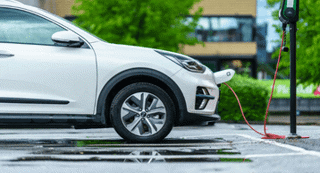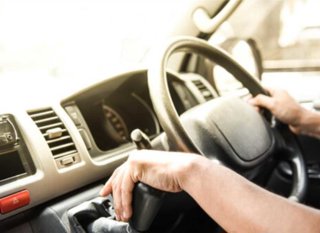Two-fifths of fleet drivers are not happy having on-board technology that accurately identifies their location, new research has revealed.
However, the overwhelming majority (93.1%) would be happy having a tracker device that could help police locate their vehicle if it was stolen, says ALD Automotive.
Despite massive improvements in security made by manufacturers, 300 vehicles are still stolen in the UK every day – a car or van every five minutes.
Around half of stolen vehicles are recovered. Had they all been fitted with a tracker, almost 90% would have been returned to their owner.
The Ford Transit remains top of the car thief’s hit list, according to the ACPO Vehicle Crime Intelligence Service (AVCIS).
Half of thefts were made when a vehicle was at the owner’s home or close by, including 17.6% via burglary to get car keys.
A third were stolen when vehicles were away from the home and 4% of crimes were made by opportunist thieves, where keys were left in or within easy reach.
“These figures demonstrate that vehicle crime continues to be an issue across the UK,” said Detective Chief Inspector Mark Hooper, head of AVCIS.
“Criminals will use a variety of means to steal cars, from towing them away or simply driving them off when owners leave the keys in the ignition to burgling houses and sophisticated attacks on manufacturers’ security systems.”
Many fleets turning to telematics in an effort to drive down costs, benefit from vehicle tracking in the event of a theft.
ProFleet2 from ALD Automotive helps fleets cut costs, reduce risk and minimise carbon emissions.
But ProFleet2 controller Andy Fowler told Fleet News the system has also helped police successfully trace 65 vehicles worth around £1.5 million.
“If a car or van is stolen and we get the approval of the lessor, we send something akin to a text message to the unit housed in the vehicle,” Fowler said.
Northern Gas Networks (NGN) has 207 company cars fitted with ALD’s tracking technology, which has helped police trace three vehicles in the past year.
“It’s a major problem,” said Giles Paxton, NGN contracts officer.
“We had one vehicle recovered within 24 hours and we estimate having those three vehicles returned saved us about £70,000.
Many telematics companies offer tracking. One of the best known is Tracker which has fitted units to more than one million vehicles, motorcycles and plant.
Since 1993 it has recovered more than 20,500 stolen vehicles – worth a staggering £447m. Each month, it helps to recover an average £2m worth of stolen vehicles. It has also helped arrest more than 2,000 car thieves.
The company recently launched Tracker Check giving police officers direct web access to its stolen vehicle recovery data.
Wayne Turff, technical director at Hands 3 Communications, which fits vehicle tracking devices, said they ranged from beacon systems that pinpoint a stolen vehicle to those that allow a ‘safe zone’ to be set which triggers an alert to the monitoring station if the vehicle leaves that area.
“The more sophisticated vehicle tracking services can also provide a proactive service which sends an alert if the vehicle is being used out of the norm,” said Turff.
Other options include driver recognition devices that can tell if the vehicle is driven away by someone other than the designated driver.
“A tracker device can mean the difference between getting a vehicle and its contents back safely or facing a long drawn-out insurance claim,” said Turff.
Top tips to reduce risk of car crime
- Ensure that car keys are not left in sight in your house: thieves often fish keys through letterboxes and open windows
- If you have a garage, store your car there whenever possible.
- During the summer people often leave doors and windows open: ensure your keys aren’t easily accessible for opportunist thieves, but equally do not hide them and put yourself at risk of harm from a determined thief
- Lock your car whenever you leave it. Even if you are simply unloading the car, make sure you remove the keys and lock the vehicle.
- If your car is stolen through these means if often invalidates insurance





















Login to comment
Comments
No comments have been made yet.